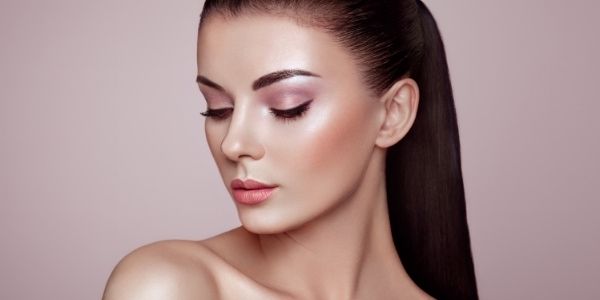Every person has a different type of skin. You may experience that your skin is different from other people and even your parents. It can happen due to genetic factors or hormonal changes. Generally speaking, there are 5 types of skin normal, oily, dry, sensitive, and combination. Each skin type displays different characteristics and has different skin problems associated with them. Continue reading to know more about different types of skin.
Different Types Of Skins
- Normal Skin
Generally speaking, normal skin can be defined as the skin that has oil and dryness, but it doesn’t affect the skin much and are present in a sufficient amount only. People who have normal skin don’t get affected by the problems caused by the oil and dryness, and if they experience any skin problem, it can easily be solved by typical medications. Other than that, normal skin has small pores, little shine, and doesn’t have a scaly or flaky surface. Also, people with normal skin types have a minimal amount of wrinkles and fine lines, with even skin tone.
You can’t call normal skin perfect skin because even though the amount is small, skin problems can also develop on normal skin. It can happen due to internal hormonal imbalance, after the effect of some disease or due to some accident. But the treatments for normal skin can be easy and fast effecting.
- Oily Skin
Generally speaking, oily skin can be defined as the skin that has a lot of glossiness and oil on their facial skin. You may think what causes oily skin? Well, you can have oily skin due to both hormonal changes and genetic factors.
Oily skin caused by hormonal changes generally occurs during puberty. At this stage, your body experiences many changes, and some time it also affects the normal functions of internal organs. A gland produces skin oil called the Sebaceous gland, and due to change in the hormone called androgen, it gets signals for producing an excess amount of skin oil called sebum.
People who have oily skin due to genetic factors have an active oil-producing Sebaceous gland. This gland produces an excess amount of skin, sebum, which normally flows in the epidermis layer and come out to the skin surface through skin pores and follicles.
There are many treatments available that can treat oily skin by reducing the oil from the skin surface, and by controlling the function of the sebaceous gland. Regular skin care and topical medications are very effective in the condition. And in case you experience skin problems causing due to oily skin to get oily skin laser treatment done to reduce skin oil and eliminating skin problems.
- Dry Skin
Generally speaking, dry skin can be defined as the skin which tight, and you notice scaly and flaky patches on it. A person with dry skin have nearly invisible skin pores and can develop premature wrinkles and fine lines.
Dry skin can be caused by a lack of moisture on the skin and dehydration. But it can also develop due to overexposure of sun and radiation. Dry skin can also be caused due to some side effect of facial treatment which used UV light.
People with dry skin should always follow an effective skin care routine to maintain their skin and to prevent any harm. Moisturization is very important, that is why you should always use suitable moisturizer and regularly hydrate your skin. Avoid direct exposure from the sun and use sunscreen. Avoid using harsh products and unnecessary skin treatments.
There is no specific remedy or treatment for dry skin because it generally occurs due to natural causes and overexposure. But there are some topical medications available that can reduce the dryness and prevent further damage.
- Sensitive Skin
Generally speaking, sensitive skin can display different characteristics of oily skin and dry skin. It means that a person with sensitive skin may experience skin oil, acne, scaly, and flaky skin, with a great amount of irritation and redness. A sensitive skin fast reactive to any change, touch, or even infections.
Simply put, sensitivity is a characteristic of the skin, and in case it starts to dominate the natural skin type, sensitive skin becomes the dominating skin type.
People with sensitive skin types can develop skin conditions rosacea and other skin allergies. That is why it is always recommended that these people should avoid any chemical-based skin care treatment and only use topical medications prescribed by a skin care specialist.
- Combination Skin
Generally speaking, combination skin can be defined as the skin that displays characteristics of more than one skin type. Normally a person with combination skin type oily skin on the T region of the face that includes forehead, nose, and chin. While the experience dryness of cheeks. It happens because of the T region of the face, a large number of active oil glands in comparison to the cheeks.
Combination skin is considered as the most common skin type, but its identification and treatment can be very tricky. But treatments like chemical peel treatment, skin exfoliation treatment are quite effective for the skin type.
Conclusion
Different skin types may come with different problems and situations. But what you need to understand that, how you can reduce it effectively and avoid any skin damage. The regular skin care, the use of correct products, and avoid any harm can reduce your problems, and in case you experience some severe skin problems, don’t start treating it on your own and consult with a dermatologist for the correct treatment procedure.




